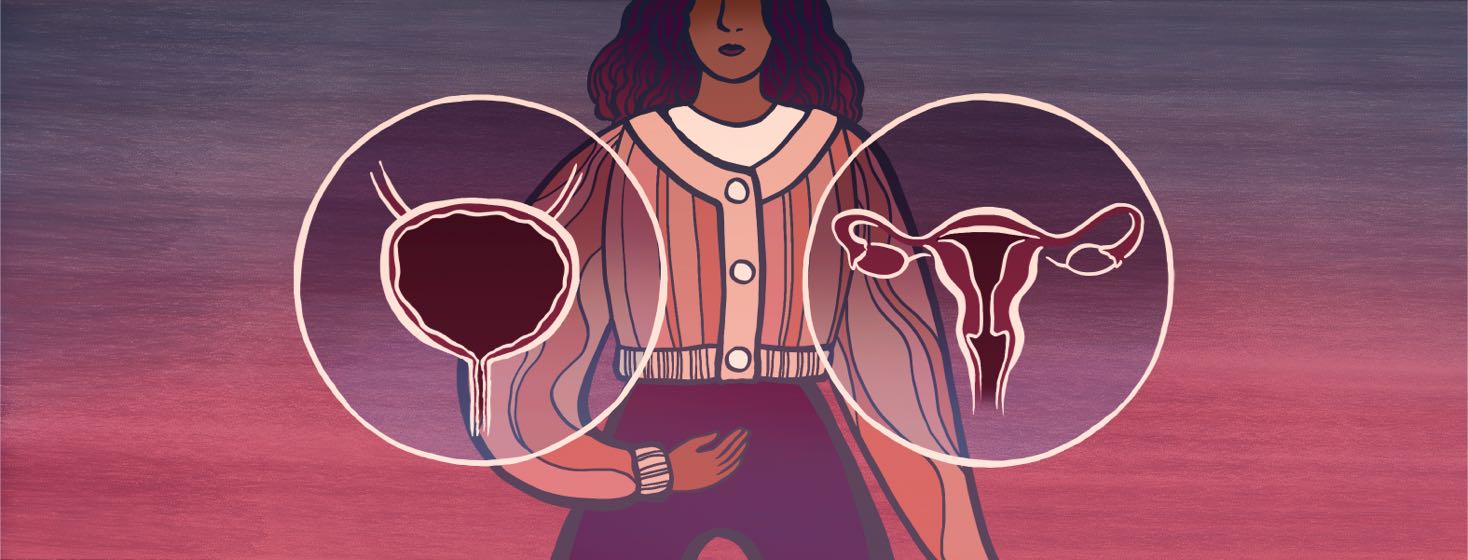Bladder Cancer and Pregnancy
Bladder cancer is more common in men than in women. In women, it usually impacts those who have never had children and those in early menopause. However, it does sometimes happen to women of childbearing age.1
Bladder cancer during pregnancy is even rarer, and there is little data about diagnosis and treatment for these women. It is no surprise that receiving a bladder cancer diagnosis during pregnancy can bring many challenges.2
Learning about the symptoms, treatments, and options available to pregnant women with bladder cancer empowers those on the same journey. Hearing from women who have faced bladder cancer during pregnancy can also provide an important perspective.
Katie's story
To learn more, we turned to BladderCancer.net patient leader Katie Firby, who was pregnant when she was diagnosed with non-invasive, high-grade bladder cancer. According to Katie, her biggest obstacle was "that people assume it doesn't happen to people my age and having to undergo treatment and check-ups with a newborn baby."
Symptoms of bladder cancer
Symptoms of bladder cancer are similar to those of a urinary tract infection (UTI). Such symptoms include:3,4
- The appearance of blood or blood clots in the urine (hematuria)
- Pain or burning sensation when going to the bathroom
- Having to urinate often
- Feeling the urge to urinate many times throughout the night
- Feeling like you have to empty your bladder but cannot
- Lower back pain on 1 side of the body
Many of the common symptoms of bladder cancer also are a sign of another rare condition known as decidual bladder endometriosis (DRBE). DRBE is a benign (non-cancerous) type of tumor that develops in the bladder during pregnancy.5
In Katie's case, she had gone back and forth to her doctor with symptoms of bladder cancer for more than a year before they confirmed her bladder cancer diagnosis. Her cancer was diagnosed during her 7-week pregnancy scan.
"I was relieved that I finally had answers to what was going on and why I was feeling so ill but scared because I also found out I was pregnant," says Katie. "I felt guilty for not pushing for a diagnosis sooner."
Diagnosing bladder cancer in pregnant women
In some cases, pregnant women have no symptoms of bladder cancer but a bladder mass is found during a routine prenatal ultrasound.4,5
Other times, pregnant women may have symptoms of a UTI. Since many of those symptoms, like back pain and having to urinate often, are common during pregnancy, it can be hard to identify what is a sign of a UTI or of bladder cancer. In this case, your doctor should order a urine test to rule out a UTI.2
One study recommends that doctors consider screening for bladder cancer in pregnant women who have blood in their urine or those with frequent urinary tract infections.2
If the results of the UTI test are negative, your doctor may perform a transvaginal or bladder ultrasound to look for signs of a bladder mass. If there are no signs of a bladder mass or UTI but symptoms continue, your doctor may perform a cystoscopy.5
If a mass is found during a cystoscopy, your doctor may consider a procedure called transurethral resection of a bladder tumor (TURBT). TURBT allows doctors to diagnose and treat early-grade bladder cancer at the same time.5
Available treatments
Treatment for bladder cancer during pregnancy depends on the stage of cancer and the trimester of the pregnancy. The mother's needs for treatment and the risk to her unborn baby, including the impact of preterm delivery, should be considered.4
One study of 18 women with bladder cancer during pregnancy found that those diagnosed with low-risk non-muscle-invasive bladder cancer (NMIBC) can likely be treated with TURBT followed by a surveillance cystoscopy at 3 months into pregnancy. Those with high-risk NMIBC will likely need to have the same treatment, followed by intravesical (in your bladder) immunotherapy with Bacillus-Calmette Guerin (BCG) after pregnancy.4
The same study found that women with muscle-invasive bladder cancer (MIBC) will likely require TURBT followed by chemotherapy and surgery to remove the bladder (cystectomy). Depending on the stage of the pregnancy at diagnosis, termination of the pregnancy or starting chemotherapy during pregnancy may need to be considered.4
When possible, doctors advise pregnant women with bladder cancer to deliver their babies between 35 and 37 weeks. This allows for the best outcomes for the baby while allowing the mother to begin treatment. Most women can deliver their baby vaginally, but those with large tumors may need to deliver via C-section.4
In Katie's case, she was treated with TURBT followed by 6 cycles of mitomycin, a type of chemotherapy. She also received BCG, as well as regular CT scans and check-up cystoscopies.
Steps pregnant women can take
If you have bladder cancer and become pregnant, there are several steps you can take to ensure a safe and healthy pregnancy:6
- Have a team of experts in place for your pregnancy
- Arrange to deliver your baby at a hospital where experts know how to handle pregnancy complications
- Make sure a urologist is on standby during the delivery
You may also find it helpful to connect with others who have similar experiences.
"I found it comforting to read other people's stories right from my initial diagnosis almost 4 years ago," says Katie. "Hearing from other young women from around the world going through a similar diagnosis and reaching out to me kept me inspired throughout my journey."
"My little boy, my lovely family, and supportive friends kept me going," says Katie. "And I learned I am a lot stronger and more resilient than I ever believed I ever was."


Join the conversation